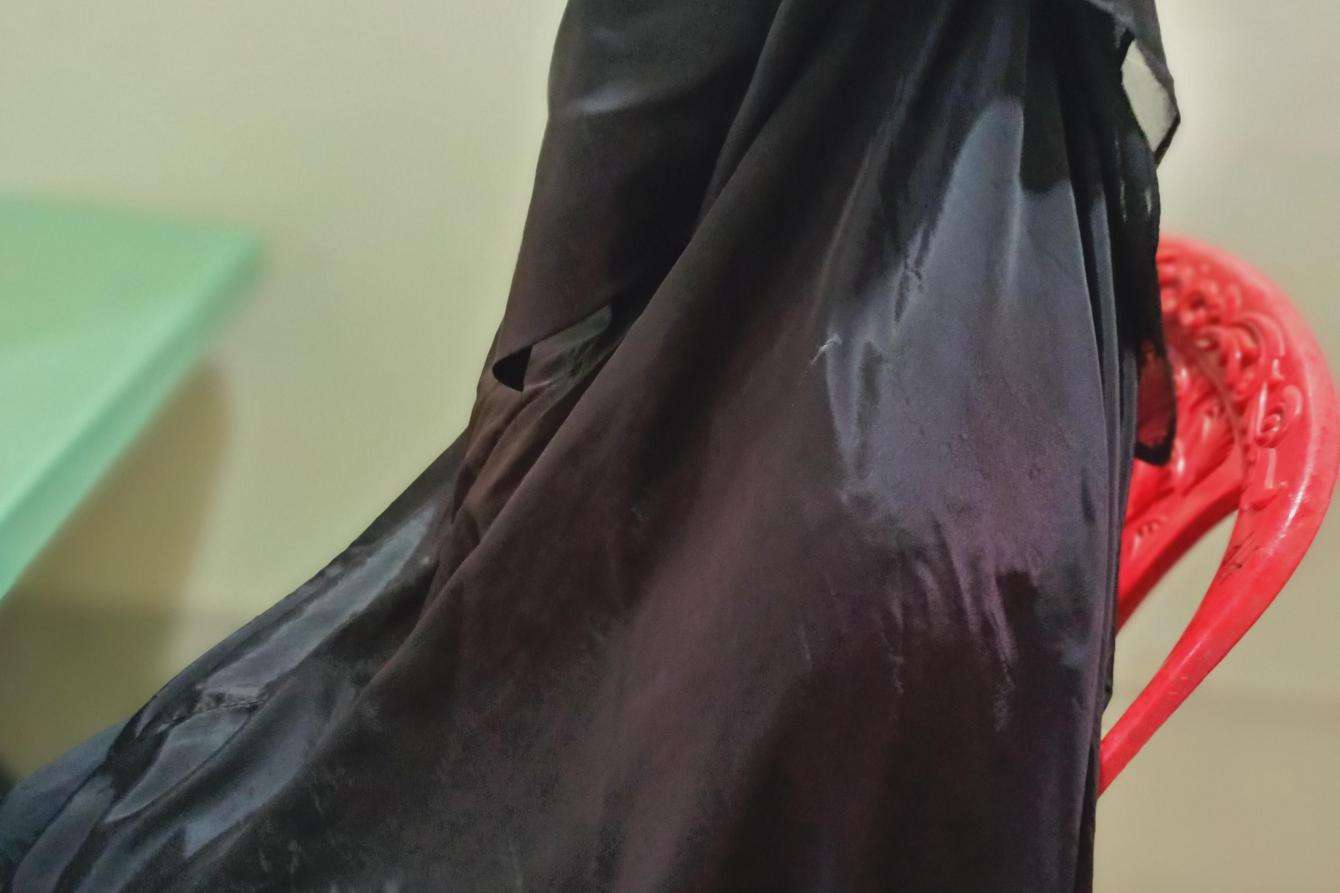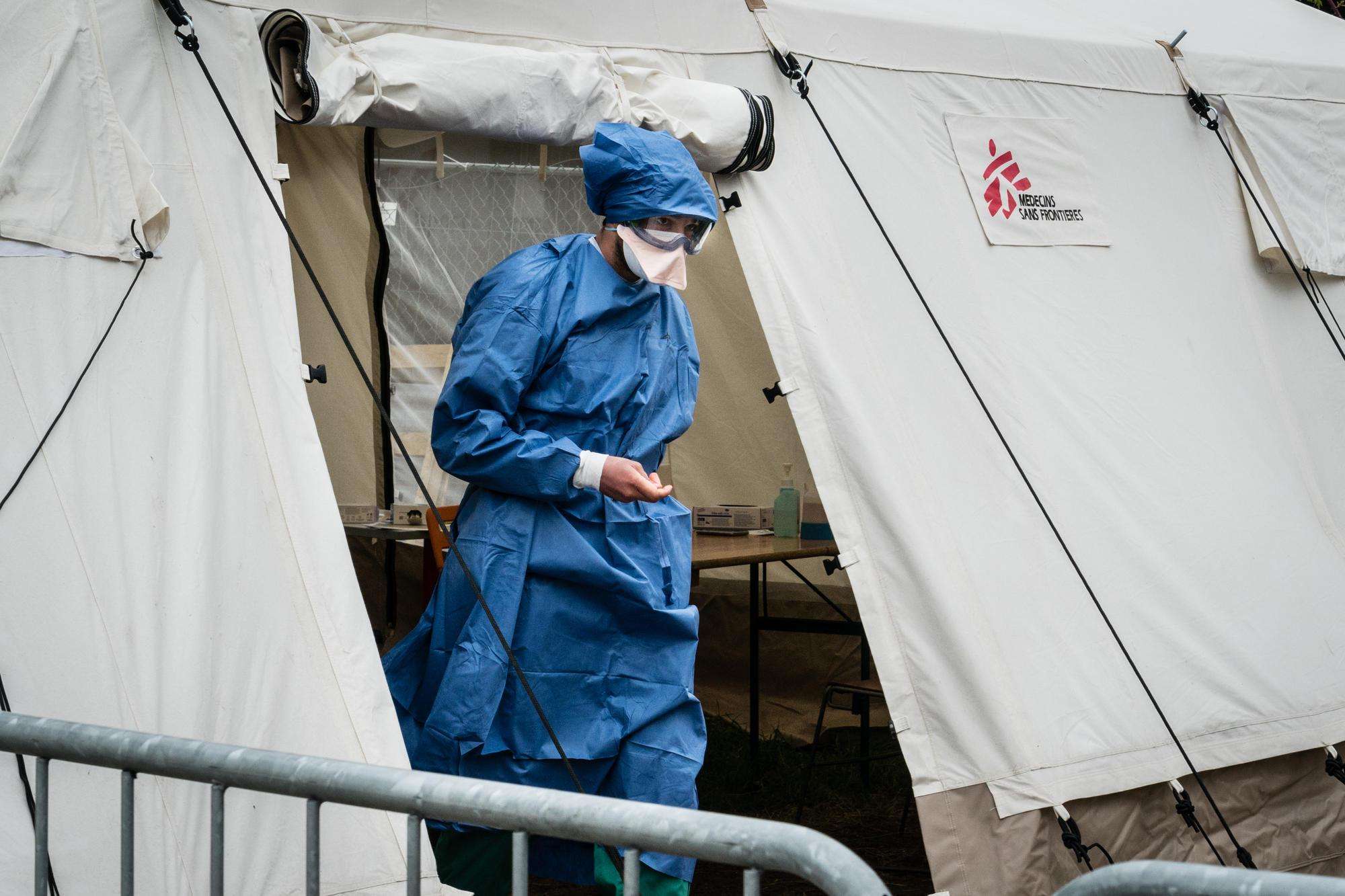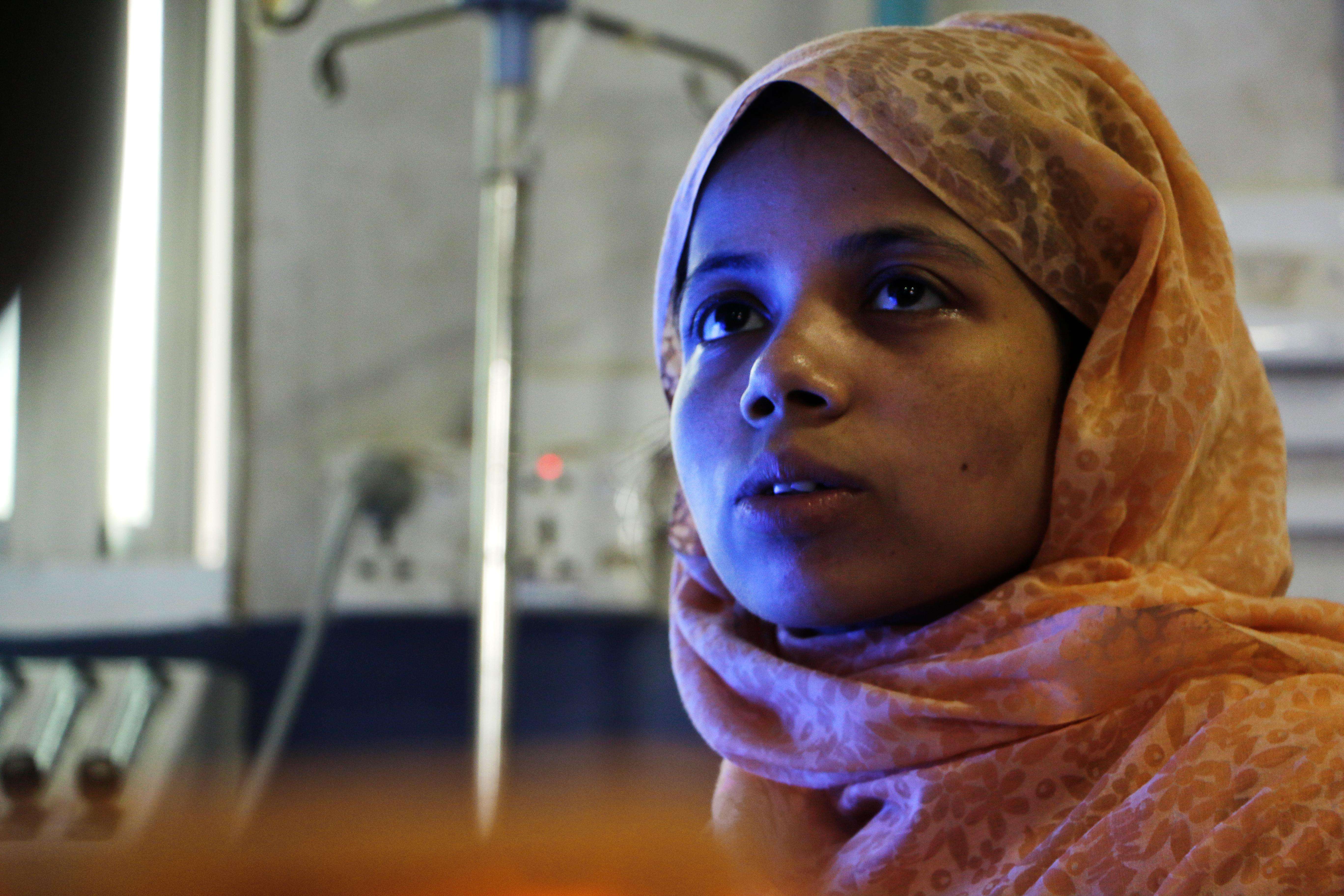For Rohingya refugees still in limbo, the stressors of COVID-19, unclear relocation plans, and an increase in violence takes a heavy toll on the mental health of people living in the camps.
Faruk is a Rohingya refugee, living in a camp in Cox’s Bazar, Bangladesh. “No one wants to be a refugee; the life we have here is not easy,” he says. “We live in an open prison. Life for a refugee is hellish and every day is the same. I can’t travel outside the area of the camps as we need special authorization to leave, and it is only granted under special circumstances such as for medical care or emergencies.”
“Sometimes I bite myself to see if I can feel something and I have tried to commit suicide,” he adds.
The pandemic restricts urgently needed services in Cox's Bazar
The mental health needs of Rohingya refugees in Cox’s Bazar are especially urgent; people have been living in overcrowded camps for the past three years with no hope for the future and no legal status. In the last year, Doctors Without Borders/Médecins Sans Frontières (MSF) has seen a sharp increase in people seeking mental health services.
The restrictions imposed by the COVID-19 pandemic have exacerbated these stressors. To counter the spread of the virus, the services throughout the camps—including medical care and food and water distributions, provided primarily by humanitarian organizations—were reduced by 80 percent. The mounting impact of restricting this humanitarian support over the course of many months, especially on a community that is increasingly contained and put in a position where they are dependent on humanitarian assistance, has meant the daily struggle to meet even basic needs has heightened tensions.
Complicated relocation efforts, fires, and violence exacerbate stressors for refugees
In May 2020, around 300 Rohingya refugees who had been rescued at sea were transferred to quarantine on Bhasan Char, a mass of sediment which has formed an “island” 30 kilometers (18 miles) from the mainland. They never left and little is known about the conditions they have faced while detained. In early December, they were joined by more than 1,600 people from the camps in Cox’s Bazar. To date, it’s estimated that more than 3,000 people have been relocated to Bhasan Char. It's likely that more Rohingya will face relocation soon; authorities claim the island has the capacity to house 100,000 people. Independent humanitarian organizations, including the UN, have yet to gain access to the site, adding to the growing concerns about the conditions there.
For those still waiting in Cox's Bazaar, efforts to relocate some refugees to address the overcrowding only amplify the uneasiness. Looking beyond the pandemic, life in the camps shows no signs of improving. Recently, a fire destroyed around 550 shelters at the Nayapara Registered Refugee camp, where news reports estimated around 3,500 refugees were staying. Although there were no casualties, and only a few people with minor injuries, for those living at the site, the disruption to daily life has been huge.
The increasing psychological strain on the Rohingya refugees in Bangladesh has recently spilled into violence.
Asiya looks nervous when she arrives at MSF’s Kutupalong hospital. She needs to talk to someone about what she experienced in October during a 12-day clash between two Rohingya groups in the camps.

With a shaky voice she describes the violence she witnessed. “I was hiding in the kitchen with my children so that no one could attack us,” she says. “When the violence broke out in the camps there were no men at home. We could hear the gunshots and we stayed silent, closing all the doors. We were frightened and shocked.”
Refugees in Cox Bazaar work through the trauma with MSF teams
After the violence, many refugees left their shelters and moved to other parts of the camp which were unaffected by the clashes. Our field team spoke with traumatized people who were too afraid to visit hospitals, health posts, or clinics for basic health care.
MSF Mental Health Activity Manager Kathy Lostos says despite the recent escalations, the situation is not hopeless—steps can be taken to improve the situation for those living in the camps, and in turn, their mental health. “The best thing to improve mental health outcomes is to restore a sense of safety,” she says. “Having some degree of control or autonomy over one's future is a determinant of creating a sense of safety. This includes things like engaging communities in decision-making processes or creating a sense of autonomy and control over one's future. [This] serves to mitigate the long-term effects of trauma.”
“When a group's future is uncertain and when a population is not integrated into a society, this creates a feeling of lack of safety,” says Lostos. “Feeling that your life is under threat can lead to helplessness, believing that ‘nothing that I do will matter,’ and this can have a huge impact on people’s mental wellbeing.”
Laiju, a volunteer in Kutupalong hospital, fled the violence and took shelter in a school with her family. “We left our homes and took shelter in a school premises inside the camp, and we were out of our home for almost 20 days,” she says.
While speaking, Laiju holds paper in her hands and rolls it over again and again. Our mental health staff could see she was making little eye contact, and possibly trying to control her emotions by keeping herself busy. “I am tense and truly frustrated thinking about the future,” she says. “I started thinking, in a way, that we don’t have any future or hopes. We are just trapped here, and restrictions of movement and the impossibility of getting jobs are making our life much tougher.”
But despite the many mounting challenges, there is still hope within the camps. “I have many dreams,” says Faruk. “I want to visit and explore other places. I want to go to my home in Arakan [Rakhine state, Myanmar], so long as we get justice and rights.”
MSF has been running mental health activities inside the camps in Cox’s Bazar since 2009. There, our teams provide support through individual, family, and group counselling sessions, where mental health specialists focus on coping mechanisms and building resilience. The strain on Rohingya refugees is represented in the increasing number of mental health services that were provided by MSF staff in Cox’s Bazar in the last year, with MSF’s figures showing an estimated 61 percent increase in the number of people seeking mental health services when compared to the year prior. These figures show an estimated 74 percent increase for group mental health consultations and a 51 percent increase in individual mental health consultations in 2020. From January to December 2020, MSF staff provided 36,027 group mental health consultations, and 32,336 individual consultations. While in 2019, the team carried out 20,724 group and 21,297 individual consultations during the same time period.
*Names of patients have been changed at their request.





